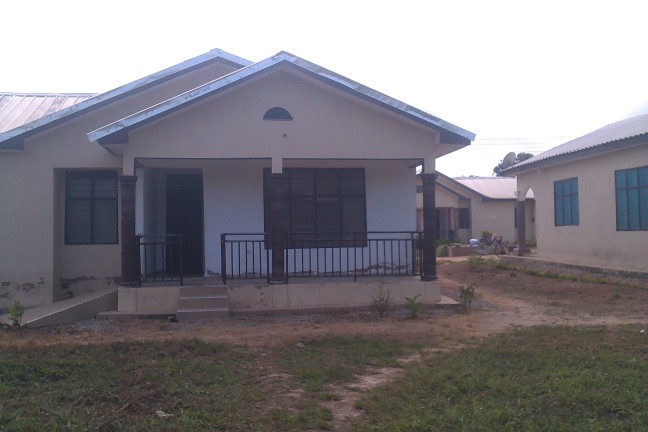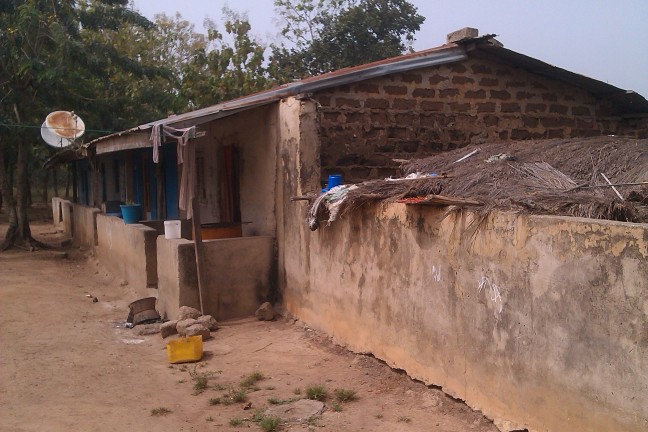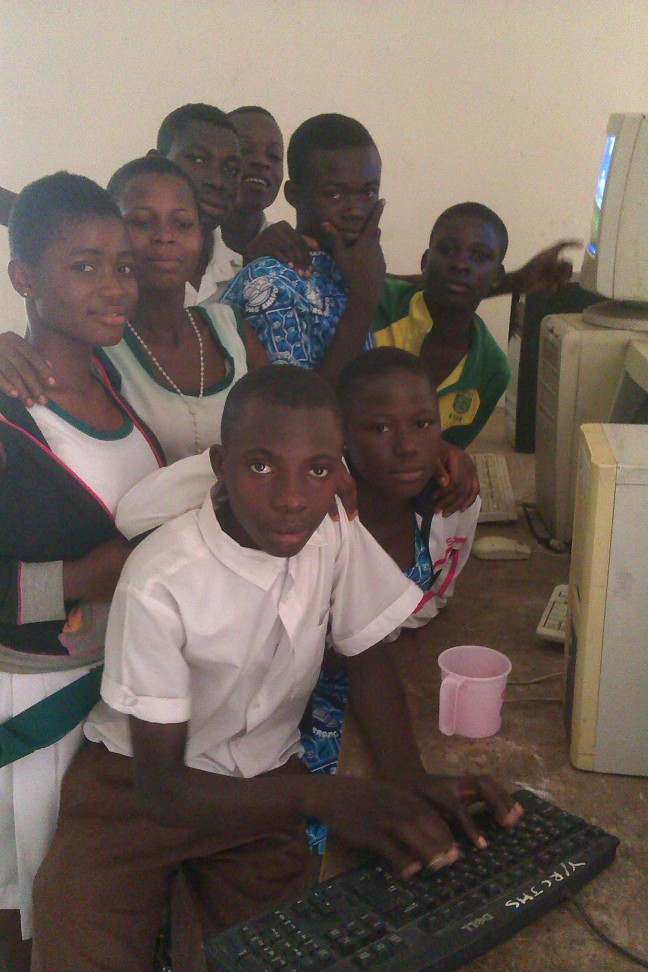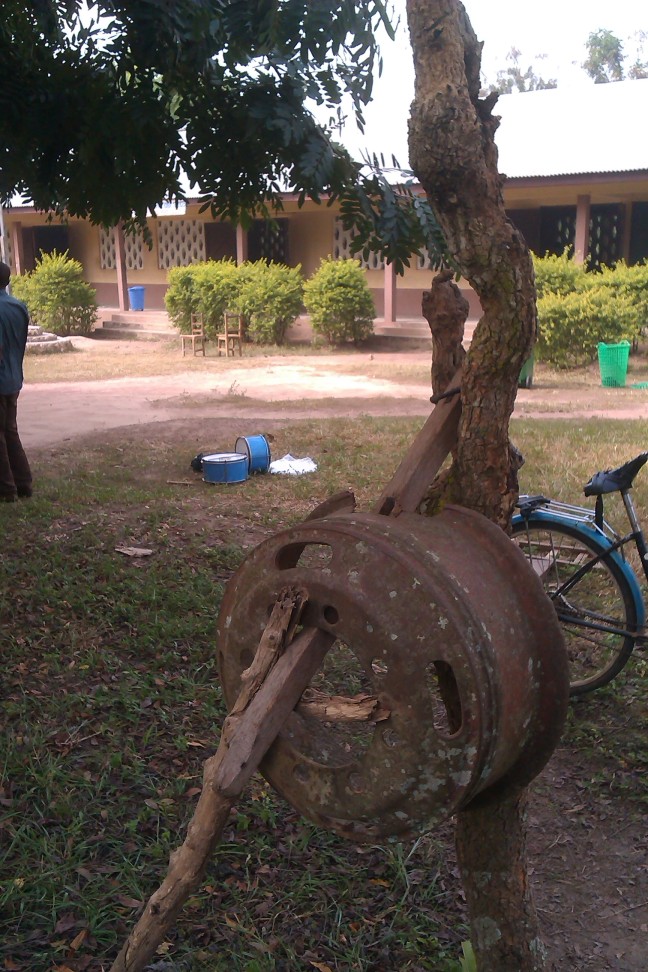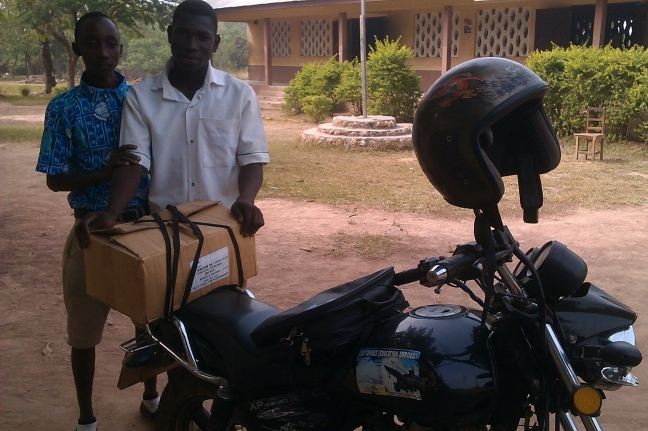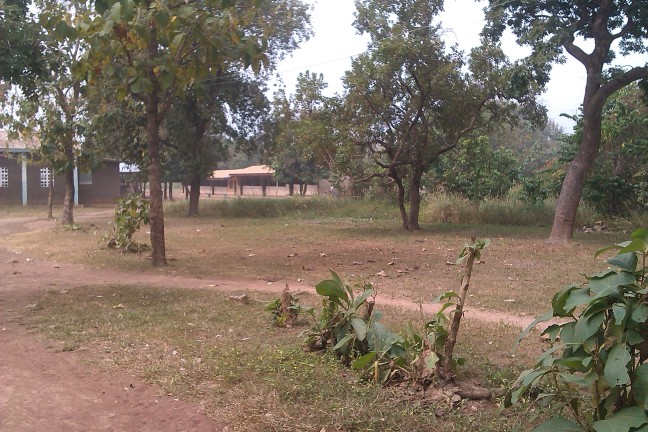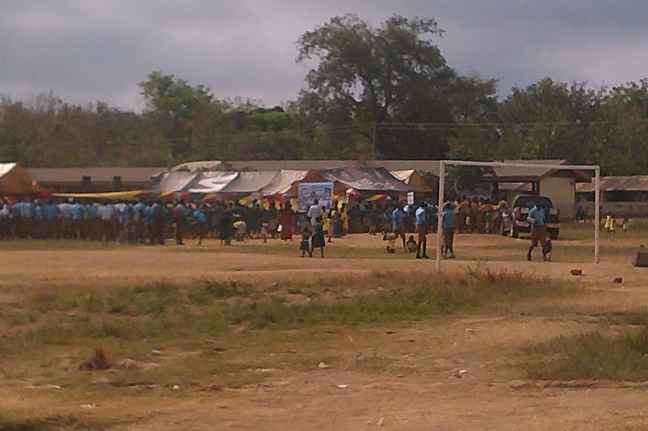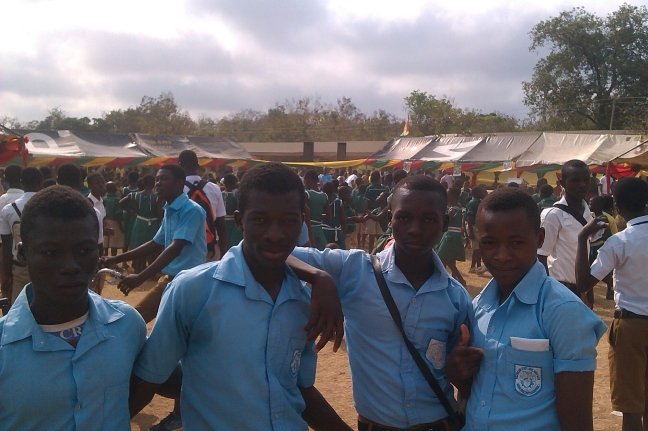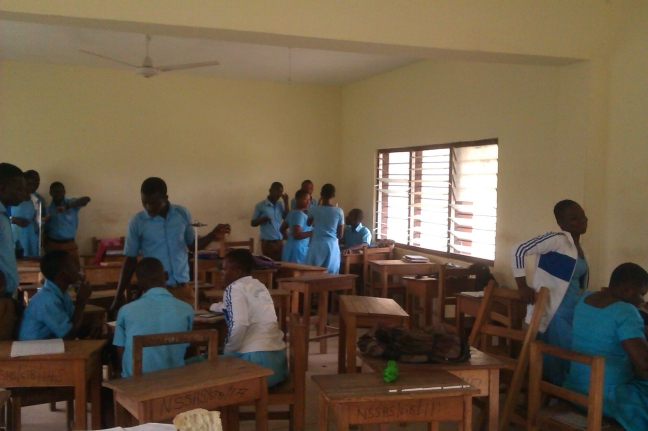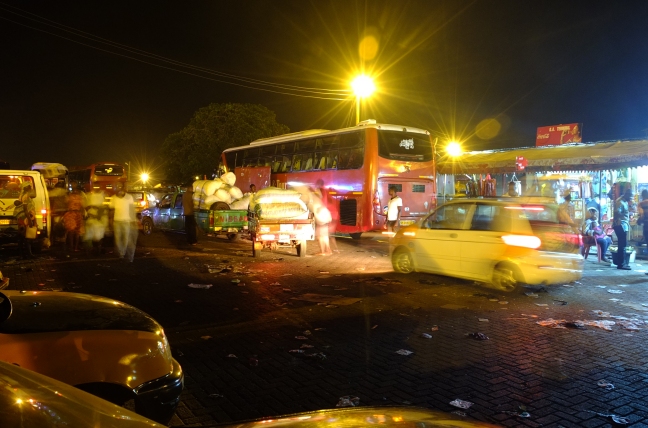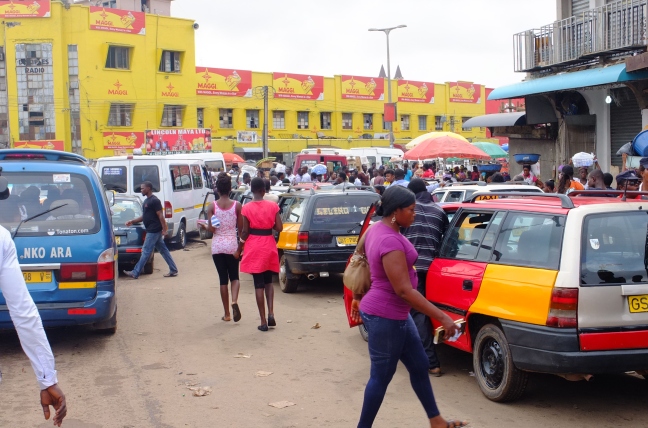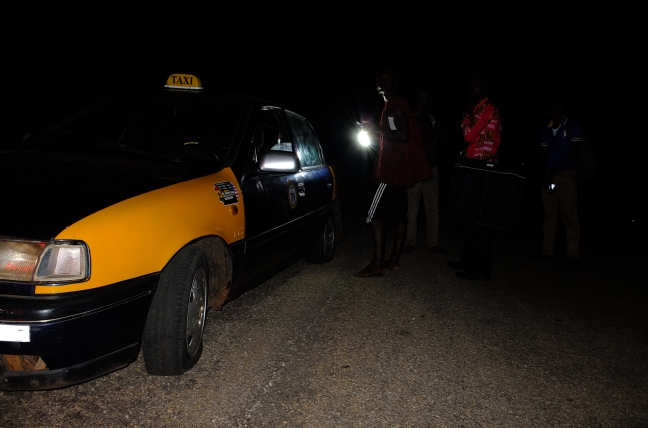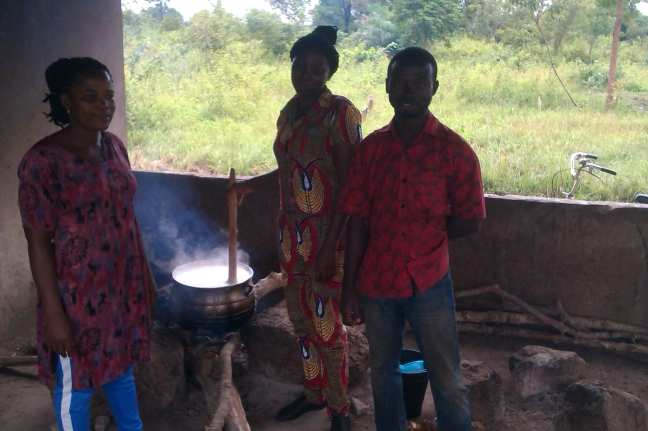This topic will be a bit different from some of my other posts, but it is one of a series I want to write gently leading to a specific point. This one though exams about how different living in Ghana is.
So I won’t pretend I know it perfectly, or even close to everything I could to broach this topic, but I have been living on the school grounds for the last 7 weeks, which means I’ve been meeting and talking to the teachers as well whoever else I can for all this time so I know an adequate amount to at least comment enough to make it interesting.
So you are aware; 1 GBP is roughly 5.5 Ghanaian cedis (cd). I don’t know exactly what this is in euros or dollars, but then I also don’t know some of the salaries and prices in Europe or the United States so all my comparisons will be with the UK but I hope this would have been obvious from the start.
So Just how different is life in Ghana? Let’s start with the fact that in Ghana there is little to no welfare, so what you earn is what you get. If you are unemployed you have to beg, get money some other way or starve. There seems to be very little begging (I guess because many Ghanaians don’t have enough for themselves let alone others), so in reality most people find some form of employment for themselves. Most people in rural communities also seem to have some land where after they finish work and on Saturdays, they go to ‘farm’.
Farming here is very different to a western country. It’s all mostly small scale and done by hand, and most of the year consists of clearing weeds. The main crops here are cachou nuts, Yam, Cassava and maize for eating, and cachou nuts and coco beans as money crops. There are others such as tomatoes, chillies, plantains and bananas, but these are less common. Also I do not know what the tax rate is these are salary to salary comparisons and not take away money.
In Ghana, there also doesn’t seem to be a national minimum wage. Instead, for a paid worker, such as a manual labourer or construction worker, your salary will depend on who your employer is and where you are. In a city or simply away from a rural environment I’ve been told you would expect to pay someone 33cd a day to help with the construction of your house but if you come to a small rural community such as the one I’m living in this can go down to as little as 12cd a day. 12cd is just over 2 GBP a day to live on completely. For a pure farmer though, using cachou nuts as an example, the season is January to July and he indicated he earnt enough in that period to be ok for the whole year (although he did also grow other food the rest of the year to eat).
For a manual labourer though there is quite a bit of building work that goes on. A lot of it is done by the people themselves, but if you need to hire someone the salaries above are what you would expect to pay them. This means the maximum monthly salary, minus weekends (as Saturdays are farm and funeral days and Sundays are church days) would be around 12cd x 22 days = 264cd a month.
Before I get on to what this can buy or get with this, I want to talk about the other professions I can comment on, most importantly for me, teachers, but also market sellers.
In Ghana a teacher would expect to earn about 16,000cd a year, possibly a bit less, but also irrespective of how long they’ve been a teacher or what level of qualification they’ve reached. I believe there is a scaling for responsibilities, but I don’t know what it is if there is one. 16,000cd is, depending on how you want to think about it, 2,760 GBP a year, 1333cd (242 GBP) a month, or 60cd (11 GBP) a day.
A market worker in a city would expect to earn sometimes as little as nothing a day, or sometimes as much as 350cd a day. but it will average out at about the same as a teacher over a whole year but in spits and spurts and you would also work more hours and it is more stressful.
I do not (yet) know what other professions expect to earn and I will ignore the being rich here as being rich in a poor country means your style of living is almost entirely dependent on how you choose to live and not limited by what you can and can’t afford.
So what do these salaries: 264cd (or 426cd in a city) and 1333cd a month get you?
Well the first major difference is living arrangements. If you are lucky enough to own a ‘house’, this can mean quite a lot of things ranging from a single room, mud brick hut with a thatched leaf roof, no power and no water nearby (what we in the west would more comfortably call a hut really) – So far all the communities I’ve seen in Ghana do have water pumps luckily. This doesn’t mean you will always live close to a pump, or that there aren’t places that don’t have pumps, just that I’ve not seen these places yet. In comparison, the upper end of a standard ‘house’ would be a three to five room building (living room and bedrooms, rarely including more than one or possibly two of a toilet, bathing room or a kitchen, build from proper bricks and cement with a steel roof and electricity. Usually these won’t have running water actually in the house, but they might be right next to a pump or an external tap for water.
A house like this second one will cost roughly 30-60 thousand cedis to build (around 10,000 GBP or less) so it is expensive especially for Ghanaians and usually would be built slowly over several years as and when the person had the money while they lived in one room or with family or rented.
Renting in Ghana is most common before you get married. It is also very different to the UK. For one thing, although there the cost is as a monthly rent, you pay the full rent for the entire rental period upfront when you move in and so far I’ve not seen or heard of a rental period of less than two years long!
Another thing is that when you rent, you don’t commonly rent a house unless you have a family or wife already (women tend to live with parents until they get married still, this is not a hard and fast rule, just the general attitude of society here, so not very feminist friendly even if it is also not exactly bad either).
Instead you rent just a single room and share bathing and toilet facilities. Last major difference in rents is that the cost of renting is incredibly low compared to the UK. Even if we assume a cedis in Ghana is like a GBP in the UK, which it sort of is but with a bit of a fudge factor, renting a single room here will only cost 30cd a month and renting half a house will cost 80cd a month. I don’t think this includes bills, and I don’t know how much these would be, but I don’t *think* they are too bad.
Compare that to the cost of rent in the UK where it could be about a quarter to half your monthly salary and you can see quite a big difference.
The next absolute necessity you need to buy worth mentioning is food. Again, going by the rough comparison of 1cd to 1GBP, food in Ghana is roughly the same price as the UK but the quality is lower (as is your budget). This is not exactly accurate but is roughly right, there are differences such as fruit is cheaper (1cd for 5-10 bananas or 3/4 oranges, pineapples at 3-6cd each); bread is more expensive (a short, fairly low quality loaf is 1-2cd and an expensive loaf is 6cd); a street meal (ie take away) could be from 2cd to 10cd and a sit down meal like a restaurant could be 5cd to 25cd. There are a lot of prices in between for food as well but this is where most of the money goes I’m pretty sure.
Then there are other important things like clothes, phones accessories etc. Again, as far as I can determine, prices here are roughly the same, price for price, for how much something would cost in the UK but the quality is generally lower as it is with the food. So clothes usually cost 10-50cd depending. A basic casio watch I bought was 12cd, a (secondhand) computer would be 600cd etc. 5cd buys 400mb of data on my phone for a month. You get the idea.
So taking all this, if we try to compare it to a British minimum wage, which is around 1,000 GBP a month, if we assume the buying power of 1cd in Ghana is the same as 1GBP in the UK, wages are MUCH lower in Ghana/ Yes rent is also comparatively much lower, but this is the only thing and is not enough to counter the difference in wages. Everything else is comparable and as there is little to no welfare here it explains why everything is much lower quality than the UK and why you will often see people still wearing ripped, torn and old clothes, or why children are sent to school with no shoes or mismatching clothing – they just can’t afford anything new and culturally people know this so it is more accepted as a fact of life. But hey, at least you probably get at least one square meal a day, right?
OK, so this is the comparison of two minimum wages in Ghana and the UK. What about a teacher?
This additional money a teacher makes means teachers can, in comparison to a minimum wage worker here, afford better clothes all the time, have more standardised (ie better) living conditions, own some additional technology beyond the essential mobile phone that most people have (as I wrote the first draft of this, on a laptop loaned me I might add, two teachers are playing fifa on a laptop next to me) and so on.
What ‘and so on’ is depends on who they are and what they value as they are still not well off enough to have everything they might like or need. Some examples of what else teachers spend their money would be: transport (motorbikes and mopeds that is, not even head teachers earn enough to own and run a car); saving to build a house (far more common than buying a house); supporting family (family members who can’t or don’t have jobs, brothers and sisters going to school or university, or just raising their own family(; more technology (I’ve seen ipads, big TVs etc; better clothes… and so on.
Remember though, if anyone wants a truly western thing, new, and at western quality, then they will still have to pay western prices. Not only that but no teachers are able to do all of these things at once – they have to make choices and trade-offs as anyone does, but what do you chose? Do you choose to help your younger brother go to University or to buy and run a motorbike so you can go to work? Also for most people here there is no safety net of friends or family for emergency funds or help if something goes wrong or happens like in western countries. For me although I have the money I brought with me, I know if something goes drastically bad and I need help I’ve got friends and family back in the UK I can call on. No one here has that.
This is the difference in issues of physiological needs as based upon problems based in money and finance. Actual living conditions and what people consider standard practice or normal are also incredibly different so lets go into some of these differences.
I mentioned that not every house will have its own toilet, bathing room or kitchen. In cities this is different in cities from what I’ve seen, but in my rural community it’s absolutely the case. Each community here has its own bathing area(s). This is usually a walled off area somewhere that you can stand and see out but be adequately cover from prying eyes and thus bathe yourself in. The communal toilet is usually way outside the community for health reasons and although I’ve been told about them I’m yet to see them myself, but I’ve not smelt any wee or feces since I’ve arrived and as I’ve seen the houses that have no toilet I believe this. If there is a public urinal but I may have been confusing these with the bathing places.
Cooking then is almost exclusively done outside as well. Sometimes under a shelter but usually not bothering, most of the cooking is one pot cooking so quite basic, and will be a pot (often, literally, a cauldron!) balanced on three rocks with a wood or charcoal fire for heat. If it’s fancy they’ll have two fires and pots going at once! I’ve only seen a couple of actual gas cookers (one because she was an absolute foody and the food was brilliant, the other as it was student accommodation in a city) – even the deputy headmaster of my school cooks this way (or rather his wife does – see the earlier comment on feminism).
So what other differences are there? Well there are plenty of cultural differences still, but as I’ve talked about them a bit already and I’m still struggling with them, AND I want to talk about them some other time in the future I’ll gloss over them y. But quickly, culturally speaking, I feel like a bull in a china shop – Utterly unable to interact without making mistakes or doing something wrong/oddly/badly. There is no judgment attached with this, but people like interacting with me to see how my Twi (local language) is doing and how I am doing, which is making me feel like I am constantly on show to everyone (if this is what being a celebrity is like thank god I’m not one…)
Then there is the fact that while dealing with both these issues, any talking done in English, I have to be on the watch over as they use English in a very different way to me and so anything they can say can have a different meaning to me and vice versa. As I am the only one having problems (they all use English the same here so I’m the odd one out) it is up to me to understand their meaning and adjust myself, otherwise it is yet one more thing for them to find amusing about me and/or get disappointed over. These things sum up to my feeling exhausted quite quickly in interactions so I am keeping my own company more than I should.
I realize if I interacted more I would get over it quicker but ask any introvert and they will point out it’s not as easy as that. Being here has definitely brought out my inner introvert!
Then there is the difference in religion. I realize the west is far more religious than my small socio-economic circle lets on and that the term ‘religion’ needs to be used carefully, but religion here is pervasive and strong. As an example of the strength and oddness (to my senses) of their way of believing, so far as and when it has come up with Christian-based believers, only one person has said they don’t *necessarily* believe in the literal truth that the Earth is only 6000 years old, and that was because, as he put it, the bible may have only been talking about that one group of people when talking about Adam and Eve and others could have existed elsewhere, and that the seven days to create the Earth could be meant or seen as metaphysical and a ‘day’ could be far longer than an actual day. No one is unfriendly about their beliefs. It is just different. Even the one Atheist I’ve met here was different – his belief was along the lines that no matter what religion it is, religion is inherently evil, and he was incredibly strong in this belief and used it to explain away many of the woes in Ghana and beyond.
In addition to this is an understanding of the political system in Ghana and people’s attitudes to that. First of all, Ghana is going through a recession currently and many people don’t have jobs. Unfortunately the government has not proved themselves capable of long term strategy or planning and so this is a big worry to many Ghanaians. The view is that it’s not that the politicians are corrupt by stealing the money for themselves, but that they are corrupt in that they often miss-spend, miss-use and waste money.
This leads to a constant, innate feeling of frustration aimed at politicians – Money needed for necessary projects only seems to be put into them in an election year to drum up votes. Obvious looming problems such as a growing populations and industry meaning a growing demand for electricity get ignored, leading to chronic power shortages that should have been preventable with earlier investment (something the nation is currently going through); Doing things poorly but not correctly as it costs less money but is only a short term fix so will cost more in the long term, but looks good in the short term; Schools get promised money or are owed money to feed students (there is a government funded food program for poor students) or pay for teachers that turns up months late if at all – These are the types of problems that are a daily thing Ghanaians have to live though and contend with and the feeling is it doesn’t really change no matter who is in power. One person told me they wished the US or the UK again would just come in and take over to solve these problems (I tried to point out why this would be less than ideal, he was having none of it). This is the general feeling.
And on and on, there are just so many little things. These are just some of the differences of living in Ghana to living in the UK. There are many things I’ve not really covered, like Ghanaian time and the general use of time, the traditional chiefs and more modern politician interactions and problems it can cause, the schooling system, Ghanaian food. The list goes on but each of these could be an entire entry by itself so I will leave them for now.
I hope this gives you more of a flavour of what Ghana living is truly like, and some of the major differences. Let me know in the comments if there is anything you’d like to know more about.
